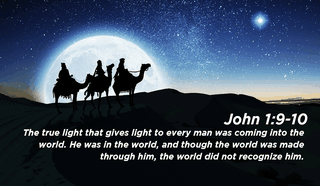
Change Translation
- Recent Translations
- All Translations
John 1:10
Share
Listen to John 1:10
Settings
Scripture Text Size
10
in mundo erat et mundus per ipsum factus est et mundus eum non cognovit
John 1:10 In-Context
8
non erat ille lux sed ut testimonium perhiberet de lumine
9
erat lux vera quae inluminat omnem hominem venientem in mundum
10
in mundo erat et mundus per ipsum factus est et mundus eum non cognovit
11
in propria venit et sui eum non receperunt
12
quotquot autem receperunt eum dedit eis potestatem filios Dei fieri his qui credunt in nomine eius
The Latin Vulgate is in the public domain.

